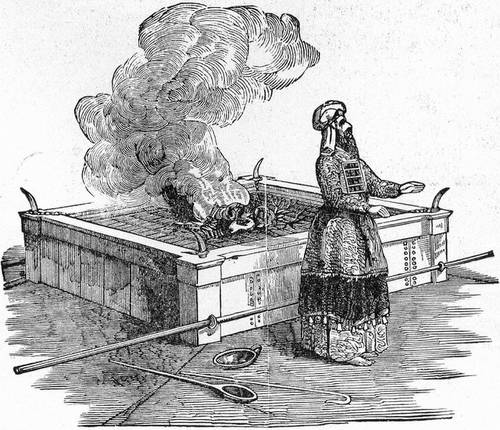Vayikra-It's Not Meant to be Easy
03/12/2019 12:03:42 AM
Rabbi Boris Dolin
| Author | |
| Date Added | |
| Automatically create summary | |
| Summary |

From the Dorshei Emet Weekly Newsletter 3/12/19
Vayikra, Leviticus was never meant to be an easy book to read. While it is the central book of the Torah, both in a physical and spiritual sense, it is in no way the most straightforward. There are no exciting family stories to relate to, no new and exciting characters to meet, and definitely little in the way of movie ready narratives to read. Instead, much of the book describes, in gory detail, the rules for the “korbanot”, the sacrifices, both animal and plant, and goes through the intricate choreography of each kind of offering.
From the olah, the “burnt” offering, to the mincha, voluntary grain offering, the peace offering, the “sin” offering and the “guilt offering”, the asham. The reasons for each offering are complicated, and beyond the descriptions, even the best of us read this text and ask ourselves how on earth any of it is relevant today. It is not just modern readers that find this to be a difficult text, in fact the Talmud (Brachot 18b) says that studying the laws of Leviticus is like “slaying a lion” since it it a so complicated, detailed and seemingly impenetrable.
We can be thankful that there are no longer animal sacrifices, but (and this is coming from your vegan rabbi), we are missing out on something very important if we fully gloss over this important part of our communal past. Yes, as we know, prayer replaced sacrifice in our tradition. We now gather together and offer words instead of burning blood and flesh when we want to give thanks. We do acts of repentance instead of slaughtering our livestock, and we study Torah, argue about issues and listen to educational lectures instead of heading to the Temple to let the priest do the dirty work for us. But is life really this easy?
I would say our lives are actually quite messy. They are filled with very real pain, and suffering. Often there is great joy and sometimes horrendous tragedy. We have the needs and the emotions that we let show, and we have our inner feelings and desires; the jealousy, the passion, the enmity and shame that we often don’t let out. A “sanitized” religion of polite prayer and song at its best can provide a very real comfort and support, but we have to remember that this is only part of what our tradition was meant to give us.
In an age of convenience and easy comfort, we need to be reminded that Judaism was not necessarily meant to be easy. The description of the sacrifices in Leviticus were meant to shock us, and remind us the power of life and death. The detailed laws of the offerings were meant to remind us that giving to others and fixing the brokenness in the world is not just a bit of volunteering here and there, or a quick protest march. It instead necessitates a deep and very real giving of our best selves and the risk of leaving feeling broken and imperfect, covered with a bit of “blood” from our sacrifice.
Leviticus reminds us that Judaism is so much more than what we say, what we pray and what we think and believe. Life demands that we act, that we offer our best selves throughout our deeds and our work. Even more we know that sometimes we may even have to do the thing that we fear, and push ourselves to our limits to make things whole once again. Leviticus may be tough to read, but in some ways it may describe the essence of Judaism, and the realities of life, better than anything else in the Torah.
Congregation Dorshei Emet - 18 Cleve Rd., Hampstead, QC, H3X 1A6 - 514-486-9400
Home - About Us - Contact - Disclaimer
Privacy Settings | Privacy Policy | Member Terms
©2025 All rights reserved. Find out more about ShulCloud



